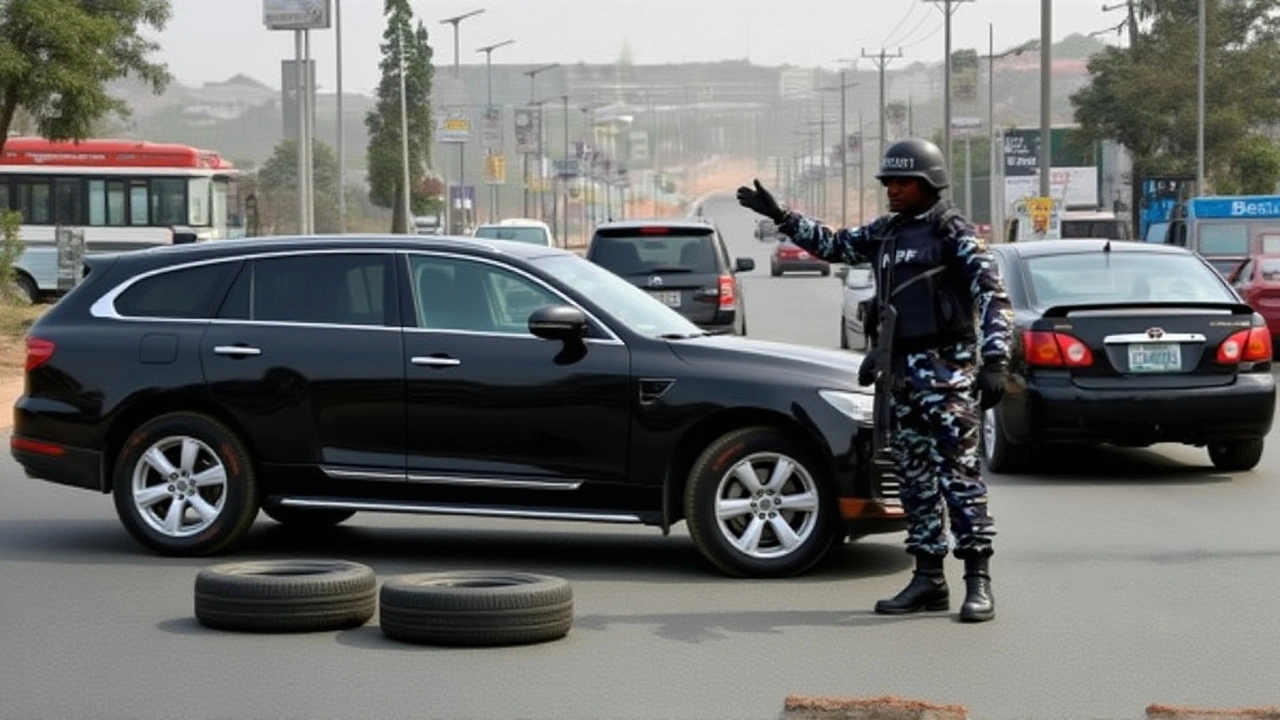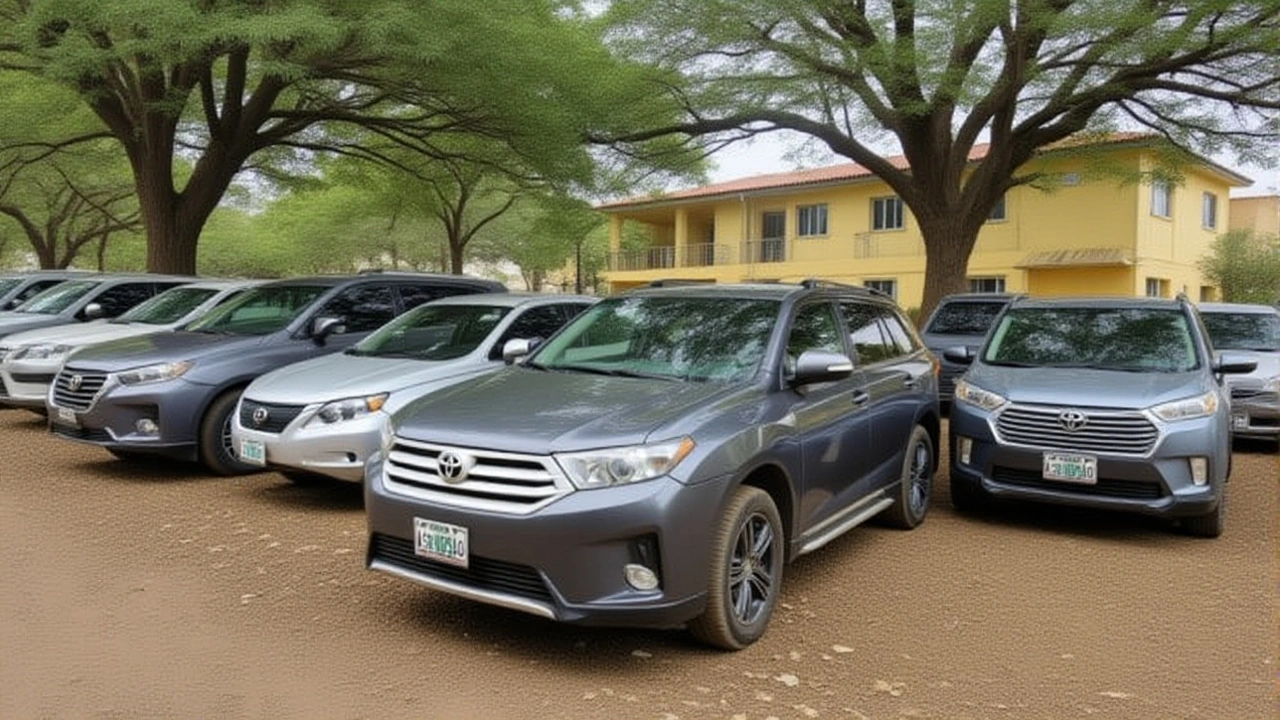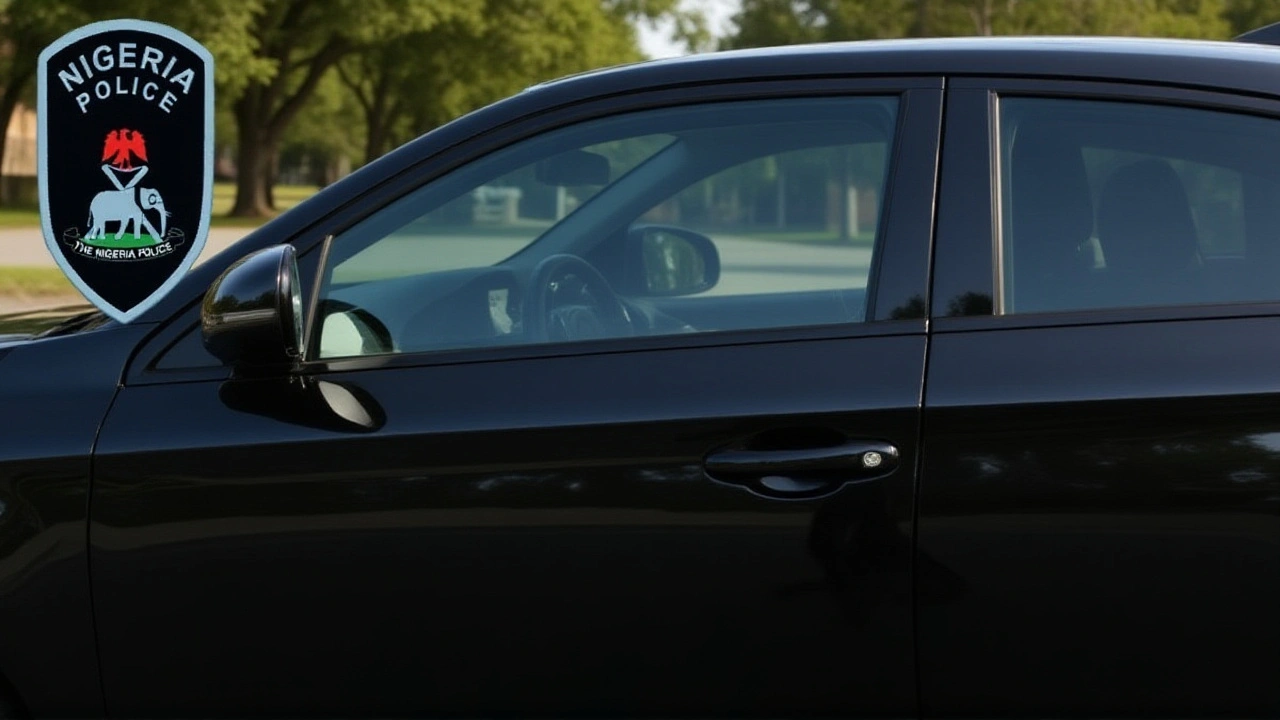When Kaduna State Police Command announced it would start enforcing the tinted glass permit regulations on Thursday, drivers across northern Nigeria braced for checkpoint queues and sudden fines.
The rollout, part of the Police Specialised Services Automation Project, follows a staggered national push that began in Lagos on October 2, 2025 and spreads to Edo, Imo and several other states within the same week.
Background: A Policy Born of Safety Concerns
The tinted‑glass scheme was first unveiled in April 2023 after the Nigeria Police Force cited traffic‑safety research linking dark windows to reduced visibility and higher accident rates. Under the rules, any vehicle with windows darker than the standard 70% light transmission must obtain a special permit from the relevant state police command.
Critics argue the policy is a revenue‑generation tool, pointing to the steep N10,000 (≈ $24) fee for a permit and the potential for selective enforcement. The controversy grew when a Federal High Court allegedly issued an injunction in August 2025 – a document the police say they never received.
Enforcement Timeline Across the Country
Here’s the thing: the coordinated timing isn’t coincidental. A secret memorandum leaked in late September revealed a national‑wide enforcement calendar designed to avoid legal loopholes that could arise from a piecemeal approach.
- October 2, 2025 – Lagos State Police Command resumes checks after a deadline extension lapsed.
- October 3, 2025 – Edo State Police Command begins its own sweep, targeting commercial fleets first.
- October 4, 2025 – Imo State Police Command rolls out a full‑state operation, deploying mobile units to highways.
- October 5, 2025 – Kaduna joins the effort, focusing on private cars and motorcycles with aftermarket tints.
The rollout is being framed as the Nationwide Tinted Glass Enforcement InitiativeNigeria, a mouthful that underscores the government’s resolve.
Legal Challenges and the Federal High Court Question
Legal experts remain split. Dr. Aisha Bello, a constitutional law professor at Ahmadu Bello University, told reporters, “If the High Court indeed issued an injunction, the police’s claim of non‑receipt does not absolve them. Procedural due‑process requires them to halt enforcement until the matter is clarified.”
On the other side, Chief Superintendent Yusuf Ibrahim, spokesperson for the Kaduna command, said, “Our officers are acting under the directives of the Federal Ministry of Interior. We have no knowledge of a valid restraining order, and we will continue to enforce the law to keep our roads safe.”
The Federal High Court has yet to publish an official copy of the alleged injunction, leaving motorists in a legal limbo. Meanwhile, the Nigeria Police Force reiterated that it has not received any formal order to suspend the enforcement.

Motorists’ Reaction: Frustration Meets Compliance
In downtown Kaduna, a line of cars snaked around the police checkpoint on Thursday morning. One driver, who asked not to be named, muttered, “I didn’t know I needed a permit. Now I’m paying the fine and waiting for paperwork.”
Surprisingly, a small but vocal group of owners with legitimate permits reported being treated the same as violators, sparking accusations of discrimination. “Even with a permit, my car was stopped for 20 minutes. The officer said ‘we’re checking everyone today,’” a Lagos commuter recounted.
Transport unions have threatened industrial action if the crackdown continues without a clear exemption process. The Nigeria Union of Road Transport Workers (NURTW) released a statement demanding a two‑week grace period for vehicle owners to acquire permits.
Expert Analysis: Safety Versus Enforcement Overreach
Traffic safety analyst Emeka Okonkwo noted that studies from the UK and Australia show a modest reduction—about 3%—in nighttime collisions after similar tint restrictions were enforced.
“If the goal is safety, the policy could work, but only if it’s applied uniformly and transparently,” Okonkwo warned. “Otherwise, it becomes a revenue tool and erodes public trust.”
Economists also weigh in. A recent report by the Lagos Chamber of Commerce estimated that the permit scheme could generate roughly N150 million (≈ $360,000) per month in fees, a figure that dwarfs the projected safety savings.

What’s Next? Potential Court Rulings and Policy Adjustments
The coming weeks will likely see a flurry of court filings. Lawyers representing motorists plan to file a class‑action suit in the Federal High Court next Monday, seeking an immediate stay on the enforcement and a review of the permit fee structure.
Meanwhile, the Ministry of Interior has hinted at a possible amendment that would allow a 30‑day grace period for existing vehicle owners. If approved, the amendment could ease tensions but would also delay the full‑scale safety benefits the police claim to pursue.
For now, drivers in Kaduna, Lagos, Edo and Imo are being advised to check their windows, keep documentation handy, and expect random checks at major entry points.
Frequently Asked Questions
What exactly is a tinted‑glass permit?
A tinted‑glass permit is an official document issued by a state police command allowing a vehicle to have windows darker than the standard 70% light transmission. The permit is valid for two years and costs N10,000, covering inspection and registration fees.
How many vehicles are expected to be affected in Kaduna?
Police estimates suggest roughly 45,000 private cars and 12,000 commercial vehicles in Kaduna have windows that could be classified as unauthorized tinted glass, meaning a sizable portion of the driving public could face fines or need permits.
Is there a court order stopping the enforcement?
A rumored Federal High Court injunction has not been publicly filed, and the Nigeria Police Force says it never received a formal restraining order. Legal scholars argue that without a verified document, enforcement can legally continue.
What penalties do drivers face for non‑compliance?
First‑time offenders typically receive a fine of N20,000 and a warning to obtain a permit within 14 days. Repeat violations can lead to vehicle impoundment and higher fines up to N50,000.
Will the government relax the rules after the crackdown?
The Ministry of Interior is reviewing the policy and may introduce a 30‑day grace period for existing owners. However, any amendment would require legislative backing, so changes are not guaranteed.

darryl archer
October 6, 2025 AT 02:06It is evident that the police's approach lacks coherence and only serves as a revnue generator. The enforcement feels like an opportunistic cash grab rather than a genuine safety measure.
Dina DiCicco
October 7, 2025 AT 03:20Enough with the half‑hearted explanations – this crackdown is a blatant money‑making scheme, and the public deserves transparency. 🚨 The police claim safety, yet the fines are crushing ordinary motorists. 🙅♀️ If the High Court truly issued an injunction, hiding it only fuels suspicion. 📜 The policy's timing across states screams coordination, not coincidence. 😡
ARPITA DAS
October 8, 2025 AT 07:06Behind the glossy press releases lies a calculated power play, designed to tighten control over the citizenry under the guise of road safety. The alleged court injunction is conveniently “missing,” suggesting a deeper suppression of dissent. Even the modest 3% safety gain is a smokescreen for massive revenue streams. This is not mere regulation; it is a strategic instrument of governance.
Sung Ho Paik
October 9, 2025 AT 10:53When we view this from a broader perspective, the intention to reduce accidents is commendable, yet the implementation risks alienating honest drivers. 🌟 Consistency and fairness are key; otherwise, trust erodes quickly. Let’s hope the authorities fine‑tune the process while keeping safety at heart. 🤝
Veena Baliga
October 10, 2025 AT 14:40Our nation’s roads must reflect our sovereign resolve, not external pressure to monetize safety. The indiscriminate enforcement undermines patriotic pride and burdens diligent citizens. A uniform, transparent policy respecting Nigerian values is essential.
vishal Hoc
October 11, 2025 AT 18:26It's important that we all work together to find a balanced solution that keeps roads safe without overburdening drivers. Collaboration between police, unions, and motorists can lead to a fair permit system. Open dialogue will help everyone understand the requirements.
Nathan Rodan
October 12, 2025 AT 22:13I appreciate your passionate stance on the matter.
However, it is also worthwhile to consider the historical context of traffic regulation in Nigeria.
The government has, over decades, struggled to enforce even basic vehicle standards.
Introducing a permit system, while imperfect, could serve as a stepping stone toward broader compliance.
Moreover, the data from comparable jurisdictions indicates modest reductions in nighttime collisions.
This suggests that targeted interventions can have measurable safety benefits.
Yet, without transparent implementation, public trust deteriorates rapidly.
The equal treatment of permit holders and non‑holders must be guaranteed.
In practice, this means rigorous training for officers at checkpoints.
It also requires a clear, accessible online portal for permit applications.
Such infrastructure will reduce arbitrary delays and curb corruption.
Community outreach programs can educate motorists about the legal thresholds for window tint.
By involving local leaders, the policy gains cultural relevance and acceptance.
Ultimately, the success of this initiative hinges on consistent enforcement and honest communication.
Any deviation from these principles risks turning safety measures into revenue tools.
Let us therefore advocate for both safety and fairness with equal vigor.
Liz Lessner
October 14, 2025 AT 02:00i think the govt should listen to the peoples concerns. thier safety is important but so is fairness. we need a clear plan that respects both.
Chance Remien
October 15, 2025 AT 05:46The core objective of any traffic regulation should be to safeguard human life while respecting individual rights. When policies are crafted transparently and applied equitably, they reinforce societal trust. Let us encourage a dialogue that balances safety imperatives with reasonable burdens on motorists.
Javier cox
December 13, 2025 AT 05:26Looks like another cash grab.